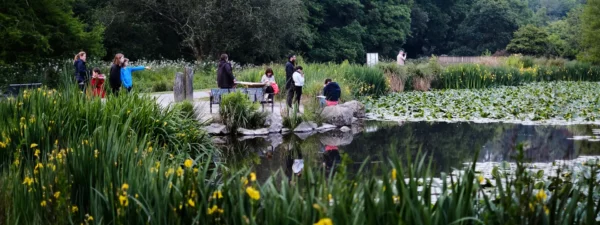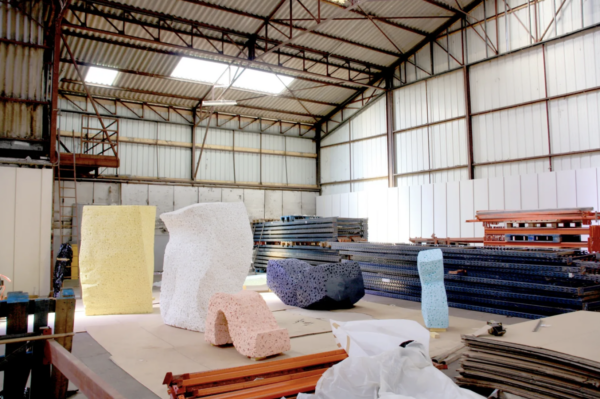
Appel à organisation – Fête de la Nature 2026
Du 20 au 25 mai 2026, la Fête de la Nature célèbrera sa 20ᵉ édition, marquant deux décennies d’actions partout…

Call for artists and social scientists to develop joint research projects with 9 organisations located in Spain
Deadline to apply: 9am on 28 March 2011.
Collaboration period: May 2011 – January 2012 (part time).
Payment: 12,000 euros (including travel and accommodation).
http://www.conexionesimprobables.com/index.php?i=ing
Share this announcement on: Facebook | Delicious | Digg | Twitter |
Improbable Connections is a community of collaborative and co-creative research initiatives aimed at innovation and social responsibility. It is based on the paradigms of open innovation and the principles of interrelated fields, disciplines and individuals.
Improbable Connections fosters an environment that is able to promote transformation from the hybridisation of differences. Slow, deeper and more radical innovation backed by joint research and experimentation, as well as by values and people.
The international call is open for artists and social scientists to collaborate with nine organisations located in the Basque Country and Salamanca (Spain), as part of the 2011 edition of Improbable Connections: DeustoTech (Institute of Technology at the University of Deusto), Fagor Electrodomésticos (household appliances cooperative group), Anesvad Foundation (cooperation NGO), Germán Sánchez Ruipérez Foundation (dedicated to promoting reading), i68 Group (software engineering company), Lauaxeta Ikastola (school), Obe Hettich (furniture solutions company), Tknika (vocational training innovation centre) and Uribe Kosta (group of ten City Councils in the Bilbao metropolitan area).
The call is open to artists, creators, experimental designers and architects, software designers and social scientists interested in developing projects in the fields of innovation and social responsibility. Both the artists and social researchers can come from any field: visual arts, performing arts, literature, music, philosophy, sociology, anthropology, etc. There is no condition of nationality, place of residence or age, and you can apply individually or as a group (regardless of legal status).
Most of the research is concerned with seeking mechanisms/channels/devices to involve people/communities in innovation processes:
› within organisations:
› › by generating a will to innovate in teaching staff (Lauaxeta Ikastola, in the field of school education)
› › by devising methodologies for managing innovation and instruments to disseminate these in vocational training centres (Tknika)
› within a much broader environment:
› › by converting users of products and services into active agents at an international level, thus transferring cooperative values from a production area (local) to a commercial area (global) (Fagor Household Appliances)
› › by achieving greater involvement from organisation members (Anesvad Foundation)
› › by developing shared brand projects with clients or suppliers (Obe Hettich, in the field of technology for the furniture sector)
Two other research projects are about rethinking/creating new services:
› by devising a new interface for users of information systems (i68 Group, software engineering)
› by rethinking the role of cultural centres in a rural setting within a cloud culture context (Germán Sánchez Ruipérez Foundation)
Finally, two organisations will carry out research in the field of social innovation based on questions of gender in one case and linguistic practice in another:
› by promoting the vocation of women towards research in the field of EICTs and towards associated engineering degrees (DeustoTech)
› by encouraging the use of Euskera, or Basque, among young people (City Councils of Uribe Kosta).
The selection process is done through an open call, with a jury selecting several candidates for each organisation. Those chosen move on to a final selection round done by the organisation after their application dossiers have been studied and a phone interview is carried out. The jury for the 2011 edition consists of Pau Alsina, Professor of Humanities at the Open University of Catalunya; Haizea Barcenilla, art critic and curator and Pedro Soler, independent curator and writer.
Conexiones improbables is a project linked to Eutokia (Centre for social innovation, Bilbao) and to San Sebastian European Capital of Culture 2016 Candidate City; it has the support of Lan Ekintza (Bilbao City Council) and is promoted by c2+i.
Du 20 au 25 mai 2026, la Fête de la Nature célèbrera sa 20ᵉ édition, marquant deux décennies d’actions partout…
Dans le cadre de leur programme 2026, La Résidence | Le Tremblay s’associe à Les Dominicaines – Centre d’art et…
Septentrionales est un programme annuel de résidences itinérantes de recherche et d’exploration artistique, ouvert à toutes les disciplines, qui invite…

